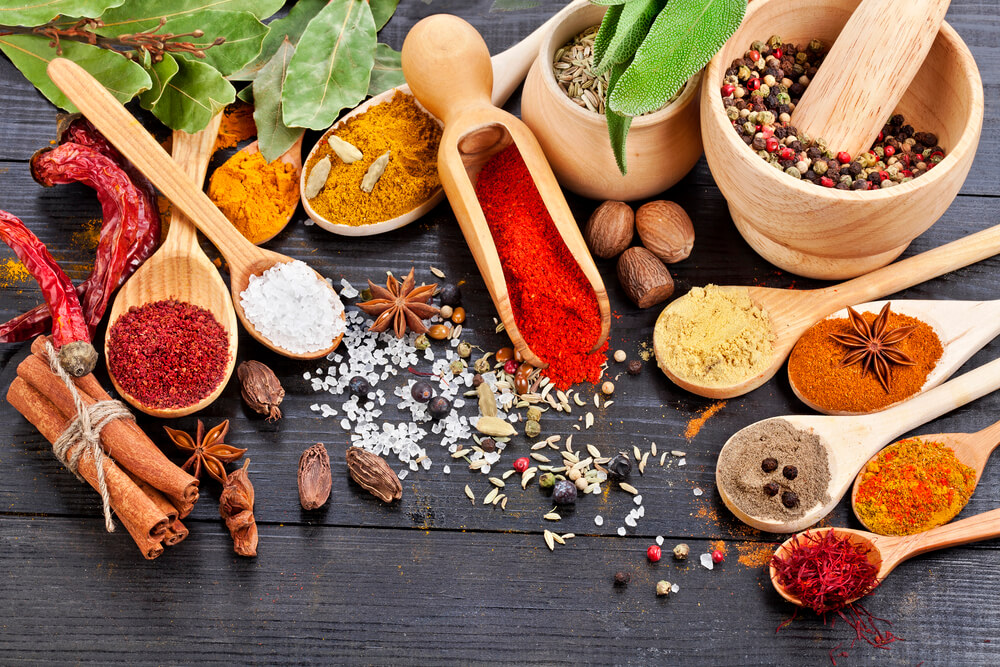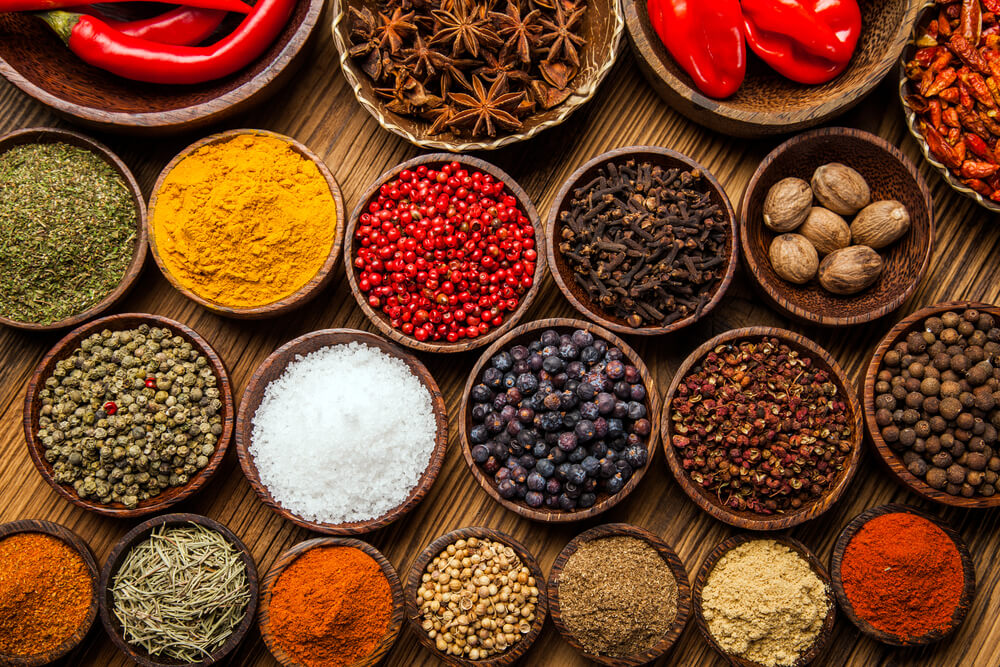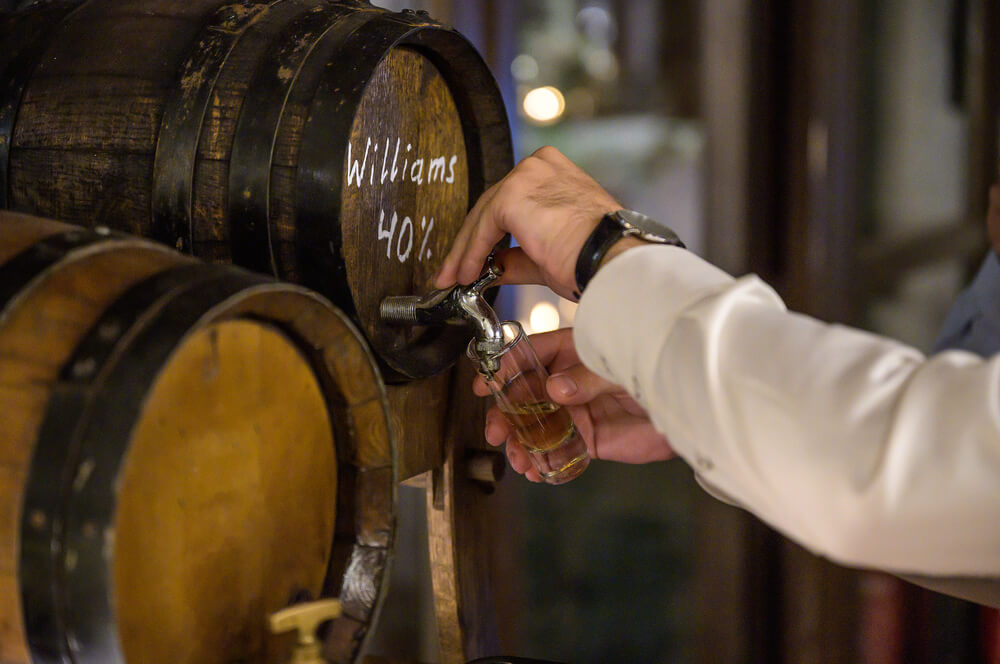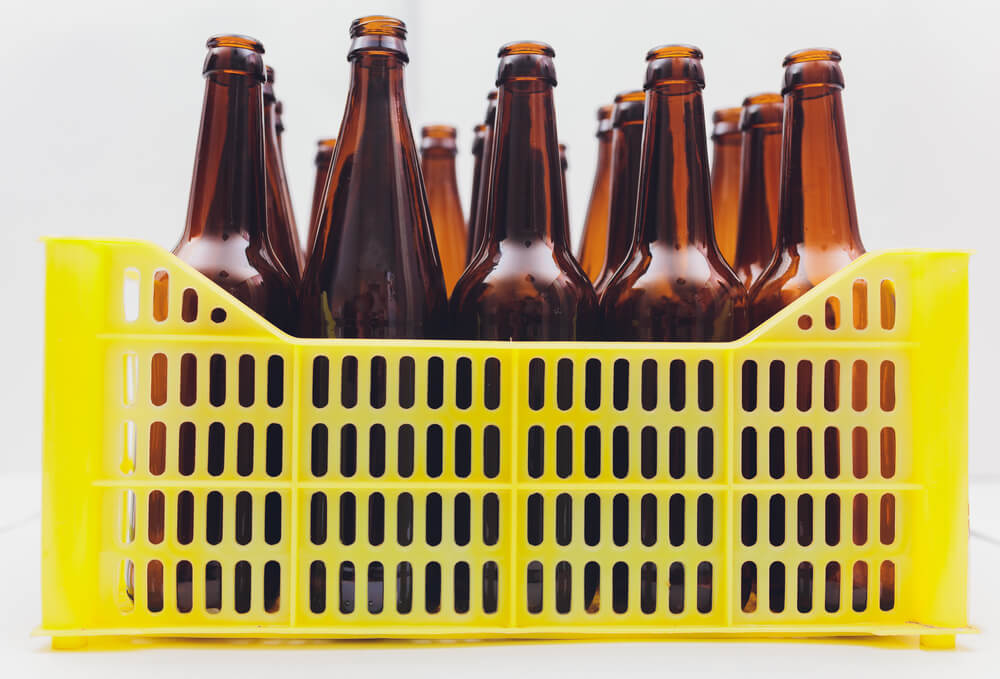Spices are often used for adding unique flavors to a beer. However, knowing when to add spices to beer is the key to a perfectly flavored brew.
It may seem a new idea to add spices, herbs, and fruits to your homebrew. However, long before hops entered the brewing process, beer was commonly brewed with various fruits, herbs, and spices. This process dates back to the middle ages.
Additives like spices can take a basic beer recipe and make it a bit more interesting. Or, if you’re brewing traditional styles like Belgian witbiers and saisons, spices are an essential ingredient for creating the flavor profiles of these beer styles.
Experimenting with spices and herbs is a fun way to expand your brewing skills. Our first experiment with spices was a delightful summer Kolsch that we brewed with a hint of lavender. It was a test in faith because we didn’t know what we were doing that first time. However, we got lucky, and it turned really well.
Since then, we’ve learned a lot about adding spices, fruits, and herbs to beer, along with an understanding of when to add them. Of course, experimenting with spices and herbs won’t always have a fantastic result. However, once you figure it out, spices can add some excitement to your brewing routine.
Best Spices for Homebrew

When it comes to adding spice to beer, there isn’t a definitive list of good or bad herbs and spices. So, if your imagination creates a recipe that uses some unique spices, the best advice that we can give is to make sure that you select a solid complimentary beer style.
For example, add vanilla to an oatmeal stout or pumpkin spices to an amber ale. It might seem fun to add pumpkin spice to a pilsner, but the result might not be as expected.
When Do You Add the Spice to Homebrew
Knowing when to add spice to your beer is essential, especially if your goal is to have a successful first try using additives. As is so often the case, timing is everything.
Add some spices too soon, and they’ll overpower your beer. Add others too late, and they won’t make a difference. Here’s when you’ll want to add your spice for the best results.
- During the Boil – As with hops, when you add spices to your boil, you open the aromas and flavors of the spice. Boiling spices for a long time will increase the spice flavor in the beer, but simultaneously, it will break down the aromatics. If you are adding spices to the boil, it is best to wait for the half-hour mark or later for the best results.
- Flameout – Flameout is the best time to add fresh herbs and spices or those with delicate flavors or aromas. You can take advantage of the heat still in the wort at flameout to extract flavors from your spices without creating an overpowering or strong flavor. Think of this like making weak tea.
- Primary Fermentation – Adding spices during primary fermentation is done regularly. The most common example of a beer “spice,” added at this stage, is the hop. We call this process “dry-hopping.” Adding spices or herbs to the primary fermentation has a similar effect as dry-hopping does. It is important to remember that if you add spices during primary fermentation, they should be sterilized, so wash them in vodka or Everclear to eliminate contaminants.
- Secondary Fermentation – Lots of homebrewers add flavors during secondary fermentation and before bottling. This is an excellent time to add spices or flavors such as lemongrass, chamomile, and lavender. Again, make sure you wash your spices in vodka or Everclear to sterilize before adding to your secondary fermentation. Secondary fermentation is a great time to add tinctures as well.
- Tinctures – Tinctures are basically infusions of flavors made with a base alcohol (vodka or Everclear) and the spices that you want to add to your beer. Soak your spices in your base alcohol until you achieve your desired flavor level. Tinctures are nice because you can experiment until you find the perfect flavor. Then add just the right amount during secondary fermentation or when you are bottling or kegging.
Other Helpful Hints
Here are some additional hints to help you successfully brew with spices.
- Fresh is best. Don’t just pull those 10-year-old spices out of your kitchen. They won’t work well. Invest in fresh spices and herbs for brewing.
- Grind or Crush. You’ll get better results from hard spices like cinnamon, cloves, cocoa nibs, or coffee if you grind or crush them. Keep the grind coarse so it filters out of your beer easily.
- Take it easy. The first few times you experiment with spice, don’t use too much. Your beer might have less flavor than you want, but that’s better than too much flavor. Besides, you can always add a tincture to spice things up a bit.



